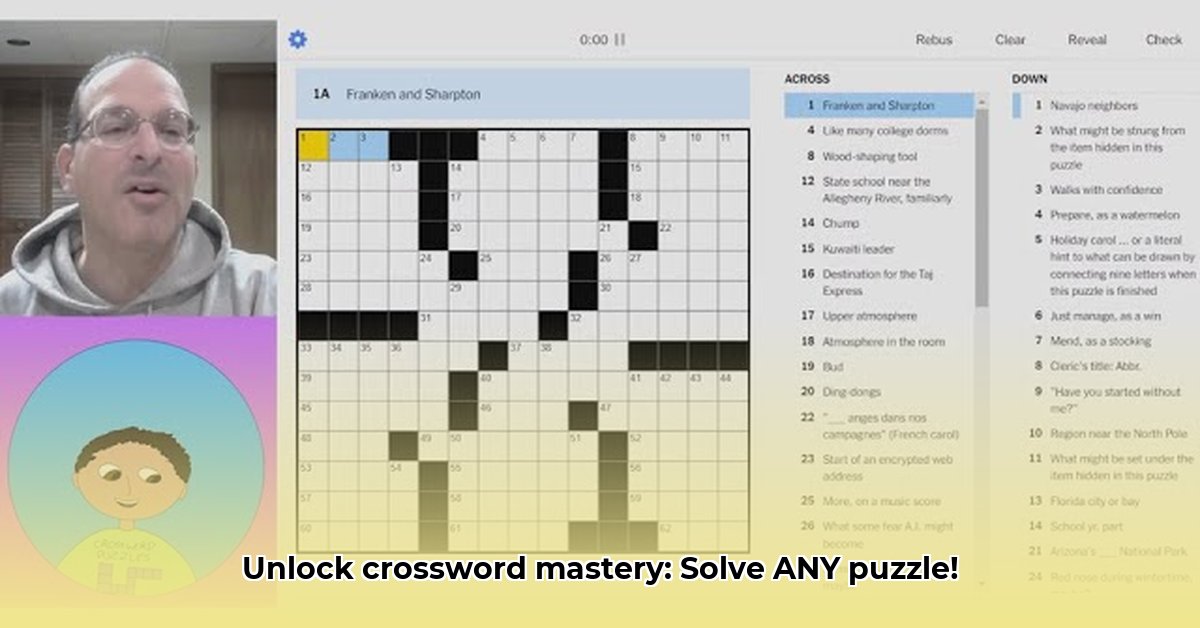
Conquer the "Turning Point" Crossword Clue: A Solver's and Constructor's Guide
Ever stared blankly at a crossword clue, especially one as deceptively simple as "Turning Point"? The frustration is real. "Turning Point," it turns out, isn't so straightforward. It can refer to a swift shift ("pivot"), a climactic event ("culmination"), or a gradual transformation ("watershed"). This detailed guide dissects the ambiguity of this challenging clue, offering actionable strategies for both solvers and crossword constructors. We'll equip you to not only crack these tricky puzzles but also craft your own compelling clues. For more advanced techniques, check out our Crossword Construction Guide.
Understanding the Ambiguity: Why "Turning Point" is Tricky
The inherent ambiguity of "Turning Point" stems from its multifaceted nature. Words like "pivot," "climax," "critical moment," and "watershed moment" all qualify as valid answers, yet each carries a subtle difference in meaning. A "pivot" implies a rapid, decisive change, unlike a "watershed moment," which signifies a significant, transformative event unfolding over a longer period. This inherent flexibility is the source of both the challenge and the intrigue of this crossword clue.
Winning Strategies for Solvers: Decoding the Clue
Here's a step-by-step approach to mastering "Turning Point" clues:
Assess the Letter Count: The number of letters required is your first clue. A short answer (e.g., "pivot") differs significantly from a longer one (e.g., "watershed moment"). This simple check immediately narrows your options.
Contextual Clues: Examine the surrounding clues. Does a theme emerge from that section of the puzzle? Do other clues provide hints or relate to the same concept? Context often provides critical clues.
Brainstorm Synonyms: Unleash your vocabulary! Think beyond the obvious. Consider synonyms like "shift," "transformation," "change," "transition," or "inflection point." Explore all possible connections.
Strategic Use of Online Solvers: While online solvers can verify potential answers, avoid over-reliance. Treat them as a confirmation tool, not a shortcut. Always attempt to solve the clue independently first.
Vocabulary Enrichment: Expanding your vocabulary, particularly terms related to change, transition, and pivotal moments, will significantly boost your crossword skills. Focus on synonyms for "transformation" and "pivotal moment."
Strategies for Creators: Crafting Precise and Engaging Clues
Constructing a truly effective "Turning Point" clue requires precision and creativity. Here's how to create a clue that is both challenging and fair:
Prioritize Precision: Avoid ambiguity by using precise language. Clearly define the type of "turning point" intended. More specific language leads to fewer possible answers. Consider using descriptive phrases instead of just "Turning Point."
Limit Potential Solutions: Before finalizing your clue, meticulously test it. Are there too many viable answers? Adding constraints, such as specifying the word length or part of speech, helps limit the possibilities.
Rigorous Testing: Always test your clues thoroughly. Have others solve the puzzle and pay close attention to their feedback. This helps identify ambiguities or weaknesses.
Advanced Techniques: Cryptic Clues and Wordplay
For advanced crossword constructors, incorporate cryptic elements or wordplay into "Turning Point" clues. Experiment with word reversals, anagrams, or double meanings related to the concepts of "turn" or "point." This adds an extra layer of complexity and sophistication.
Conclusion: Mastering the Art of the "Turning Point"
Mastering "Turning Point" clues is a journey, not a destination. By understanding the nuances of language, using strategic problem-solving, and continually refining your skills, you'll conquer both solving and constructing crossword puzzles. Remember, the most satisfying victories often come from overcoming seemingly impossible challenges!